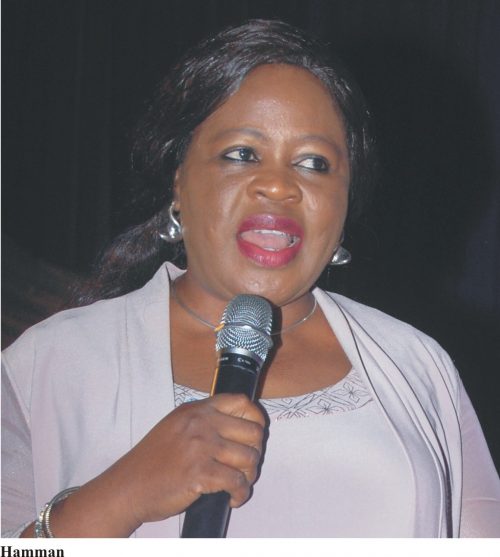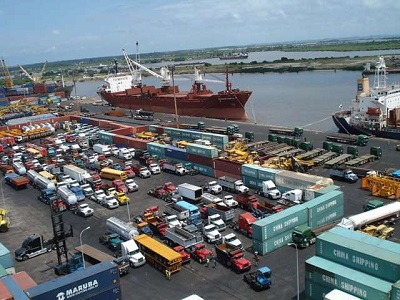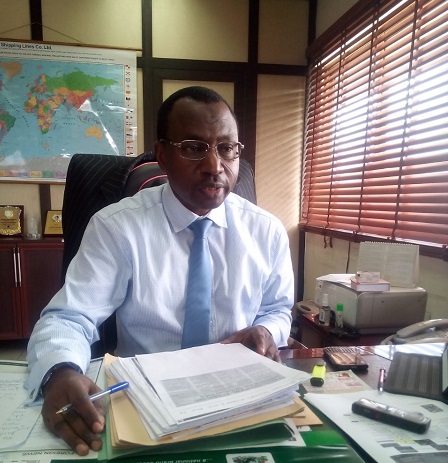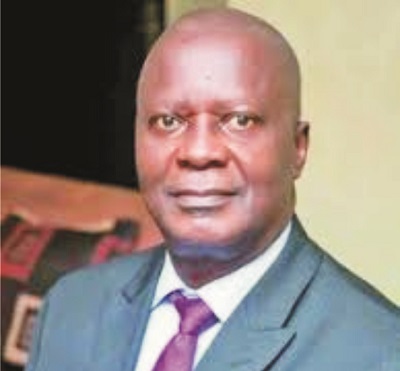Why Nigerian NGOs Aren’t Compliant To Laws And Regulations – Ozolua
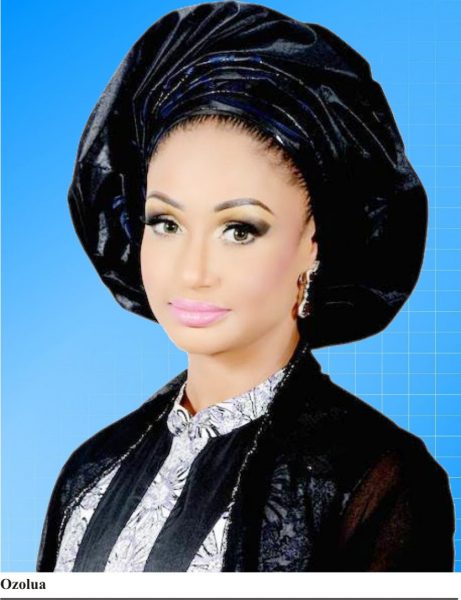
By Kenneth Jukpor
Princess Modupe Ozolua is the Special Adviser to the Deputy Senate President on Non-Government Organisations (NGOs) and Civil Society Organisations (CSOs). After a recent stakeholders consultation summit organized by the office of the Deputy Senate President in collaboration with Nigerian Shippers’ Council (NSC) last week, Modupe granted this interview to MMS Plus newspaper.
Enjoy it:
You mentioned earlier that most NGOs in Nigeria aren’t aware of the procedures for accessing charitable items. After this summit, how would you describe the situation?
I am aware that there are several Non Profit Organizations that aren’t aware of the processes required for clearing charitable items. If you aren’t within the government or you haven’t taken out time to carefully study the processes you wouldn’t know how to go about clearance of these charitable items or donations. The Deputy President of the Senate, Senator Ovie Omo-Agege is my principal and my boss and he is very concerned about this issue.
In preparing for this summit, we had to study the existing laws in relation to this issue because he isn’t just a statesman but also a philanthropist involved in humanitarian services and import of these charitable items.
After studying the Acts of the various agencies that are relevant to this issue, we realized that would have to develop a holistic and realistic solution. If you don’t understand the activities of these agencies, how do you come up with the solutions? We realized that there are so many agencies doing the same thing. You find a NGO registering with one agency today and tomorrow there is another agency that is also involved in the process. There isn’t any synergy between these agencies so that they share information provided by the NGOs. Each agency wants to fight for its space.
It is okay to have new policies but when these policies are introduced, how do people know about such policies? According to the Corporate Affairs Commission (CAC) of Nigeria, there are over 100,000 registered NGOs in the country. How is the relevant information on this subject disseminated to ensure these organisations know how to comply and what to comply to? These are the issues that the Deputy Senate President, Senator Omo-Agege is very worried about. He doesn’t want this lack of awareness to lead to lack of coordination of the Non Profit space and NGOs in the country. This can be easily misconstrued as nonchalance on the part of the government.
Beyond clearing, people need to know the first point of call when they have to receive charitable items. They have to know the processes and Standards Operating Procedures (SOPs). Since Senator Omo-Agege has brought these charitable items into Nigeria as a philanthropist, he understands the challenges in the sector.
By having all the agencies and the diverse stakeholders that came in today, we were able to appreciate their contributions. The establishment of a committee to provide the SOPs would also help resolve the issues. Some policies have already been identified but we have to work towards making these processes easier. I want to seize the opportunity to appreciate the President, Mohammadu Buhari for creating the Ministry of Humanitarian Affairs, Disaster Management and Social Development because the nation needs it at the moment.
So, in my opinion we should be harmonizing the activities of charitable items into one-stop shop and this new Ministry could play the key role. They can be responsible for relating with other agencies while ensuring that they carry out their responsibilities. The processes have to clear, streamlined and quick. We would have a robust deliberation not just with the House of Representatives members and the Senate, but also the Comptroller-General of Customs, Col. Hammed Ali (Rtd.). The good thing is that Customs has been very supportive as well as the other port stakeholders. They have all showed willingness to help and this makes things much easier. It will be to the overall benefit of Nigerians.
From the deliberations we have witnessed here today, would you say there is sufficient regulatory framework for NGOs in Nigeria?
I think NGOs and CSOs in Nigeria are over regulated. I’m part of the group so I know that there is sufficient regulation. At the moment, there are about seventeen or eighteen different agencies that we have to go through as NGOs and CSOs. Some of these agencies are unknown to most people. I’m sure that there are some people here and those watching on television that would just be learning that they have to mandatorily register with the National Planning. While some others will just be hearing that they must register with the Special Security Unit Against Money Laundering (SCUML) and these are already existing NGOs. The situation can be likened to a moving goal post while the game is on because the procedures change frequently.
NGOs must clearly understand what their responsibilities are, otherwise it would come across like they aren’t willing to comply and there would be a pushback from the government. It would look like the NGOs aren’t being compliant because they have something to hide when the fact is that they are simply not aware of the processes.
Today’s event is important and it’s not just about the processes of clearing and importing charitable items, but actually understanding what the legal obligations are. For us to work legally in Nigeria without having problems, we not only need to understand the process but also be abreast of the existing laws and regulations. We have to look at the holistic issue. We need to understand the processes to deal with before heading to the ports for clearing with the Customs. We have a lot of work to do to get this right for NGOs and for Nigerians. Hence, we would welcome recommendations from all stakeholders even though they aren’t part of the committee; they can send their contributions via email. For NGOs in Nigeria, this is an opportunity that we have and we can’t afford to mess it up.
The Senators came and the House of Representatives members also came. They represent various communities and they are committed to see this sector flourish because when it does we are helping Nigerians. It is not about helping a private sector to make money but to help Nigerians.
This is a very happy event and very successful because everybody had opportunity to make contributions on key issues. I don’t think there has been such a platform to address these issues in the past. Moving forward, we would all sit together to discuss and see how we can streamline and come up with solutions that are realistic, and we would push it further at the National Assembly.
One of the suggestions raised at the summit was the option of having specialized terminals to handle charitable items. What do you think about that?
I expect wonderful ideas such as this would be brought to the table when the committee begins deliberations. By the time, we sit and dialogue we would explore this idea as well as others that would come up. I have been privileged to meet with most of the agencies from the terminal operators to shipping companies and even truckers. The things that they shared with delegates from Shippers’ Council and me are enormous. There are several things that these stakeholders are willing to do for the sector that weren’t discussed today because we were conscious of the time. However, I’m confident that whatever we come up with will be in the best interest of Nigerians.
You made a striking statement earlier when you stated that NGOs are already over regulated. Does that mean that you are against whatever legislation that would work on that?
Regulation is important; when I said over regulation, the sentence didn’t end there. I further said that there are so many agencies and ministries we report to. It’s like moving goalpost. Today we are told to register with one agency and tomorrow there is an additional one.
I’m fully in support of whatever policies and bills comes out of the National Assembly. If my Principal, Senator Omo-Agege supports, then I support, because I know that he is looking after the interest of Nigerians. I support whatever legislation coming out of the House of Representative or the Senate pertaining to NGOs because they are chaired my men that have been in the non-profit space. They understand where the shoes pinch. You heard them talk about the fast process in Afghanistan and asked why such practices are obtainable in Nigeria. We heard the Senator talk about the need to harmonize operations and move forward because people need us. So, we are very fortunate so have fantastic leaders chairing the committees and a fantastic Deputy Senate President who wants to see changes that would help Nigerians.
The essence of this stakeholders’ engagement is to have a holistic approach towards addressing the problems and ensure that Nigerians get a system that works.




